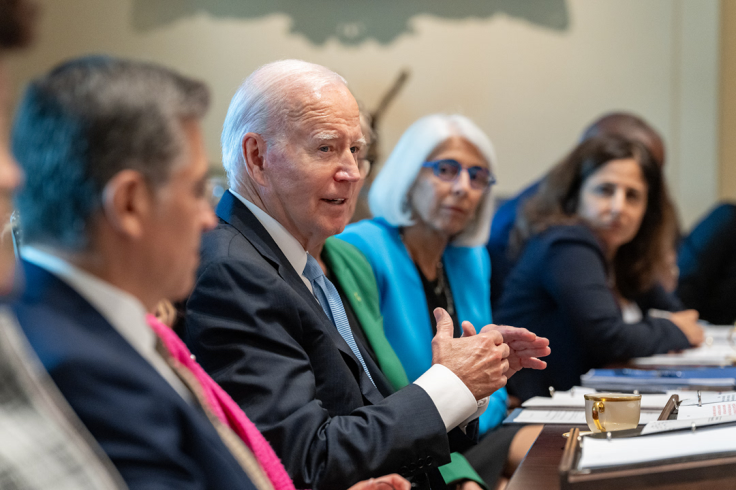Federal Judge Blocks Biden Administration's Title IX Overhaul in 6 States, Citing Inconsistencies With Original Statute
ByThe Biden administration's attempt to overhaul Title IX, the federal gender-equity law, has hit a significant roadblock. A federal judge has issued an order temporarily blocking the regulations from taking effect in Indiana, Kentucky, Ohio, Tennessee, Virginia, and West Virginia. This ruling marks a critical moment in the ongoing debate over the scope and interpretation of Title IX, which has profound implications for educational institutions across the United States.

Judicial Ruling Halts Title IX Changes
Chief Judge Danny Reeves of the U.S. District Court for the Eastern District of Kentucky found the Biden administration's final regulations, which clarify that Title IX prohibits discrimination based on sexual and gender identity, to be inconsistent with the original statute and congressional intent. Judge Reeves argued that the expanded definition of sex-based discrimination undermines the fundamental purpose of Title IX.
Reeves stated that Title IX, enacted as part of the Education Amendments of 1972, was designed to eliminate sex-based discrimination and ensure equal educational opportunities for men and women. He expressed concern that the new regulations disrupt the traditional understanding of the statute, thereby "wreaking havoc on Title IX." According to Reeves, the statutory language clearly prohibits discrimination "on the basis of sex," but the Department of Education's reinterpretation to include gender identity and sexual orientation deviates from this mandate.
READ MORE : House Republicans Vote To Overturn Biden's Expanded Title IX Protections For LGBTQ+ Students
The Broader Legal Battle
Reeves is not alone in his opposition to the Biden administration's Title IX regulations. This ruling follows a similar injunction granted to Idaho, Louisiana, Mississippi, and Montana, bringing the total number of states where the regulations are blocked to ten. Moreover, 26 Republican attorneys general have challenged the new rules in seven different lawsuits, indicating widespread legal resistance.
The primary contention among the plaintiffs is that the revised regulations could lead to the prohibition of gender-specific facilities such as restrooms and locker rooms, infringing on privacy and safety concerns. They argue that the changes are "arbitrary and capricious" and infringe upon First Amendment rights. Reeves echoed these sentiments in his ruling, criticizing the Department of Education for failing to adequately address public concerns about safety and privacy during the comment period.
The judge pointed out that the department's dismissal of these concerns was insufficient. He noted that simply disagreeing with the commenters without providing substantial evidence or reasoning was inadequate for such a significant policy shift. Reeves' ruling emphasized that a more thorough consideration of the implications for student and faculty safety was necessary.
Implications and Next Steps
The temporary injunction has significant implications for the implementation of the new Title IX regulations. For now, educational institutions in the affected states will continue to operate under the previous understanding of Title IX, which does not explicitly include protections based on sexual and gender identity. This creates a patchwork of compliance requirements across the country, as other states may adopt the new regulations while legal challenges are resolved.
The Biden administration is expected to appeal the ruling to the U.S. Court of Appeals for the Sixth Circuit. This legal battle is likely to continue, with potential ramifications reaching the Supreme Court. The outcome of these appeals will be crucial in determining the future scope of Title IX and the extent to which it protects against discrimination based on sexual orientation and gender identity.
In the meantime, educational institutions and policymakers must navigate the uncertain legal landscape, balancing compliance with federal directives against judicial rulings. This situation highlights the complex interplay between federal authority, state rights, and judicial oversight in shaping educational policy in the United States.
As the debate over Title IX continues, it underscores the broader societal discussions about gender identity, equality, and the role of government in ensuring fair treatment for all individuals. The resolution of this issue will not only impact educational institutions but also set a precedent for how gender identity is addressed in other areas of public policy.
© 2025 University Herald, All rights reserved. Do not reproduce without permission.








